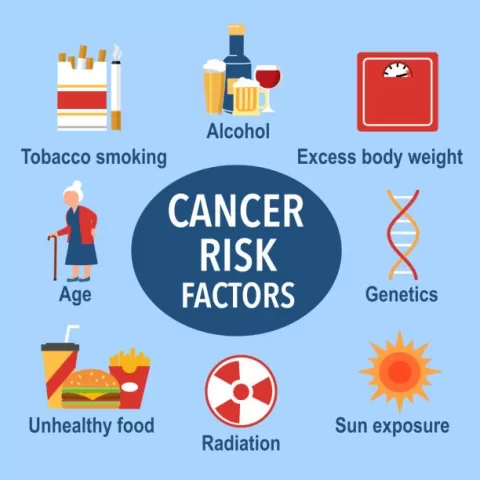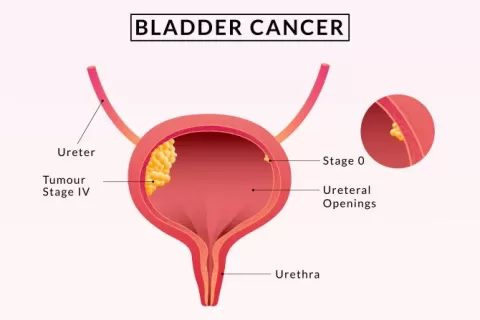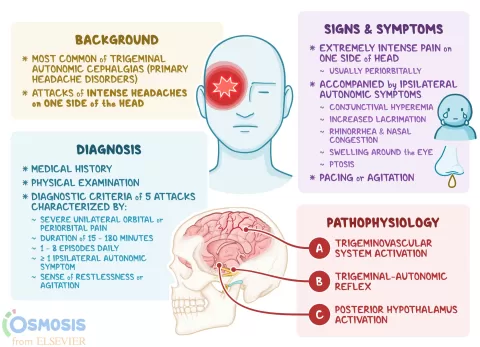Birth control misinformation has been a pervasive issue that undermines informed decision-making and impacts reproductive health. This misinformation often perpetuates a harmful stigma surrounding contraceptive methods, particularly hormonal birth control, leading many to question its safety and effectiveness. For women navigating their reproductive rights, understanding the facts about birth control options is crucial, especially when faced with societal pressures and misinformation. The landscape of male birth control options remains largely underexplored, despite potential alternatives like hormonal gels and injections that are emerging as viable choices. Addressing these myths is essential to ensure that birth control is seen not just as a means of preventing pregnancy, but as a vital aspect of personal health and autonomy.
The topic of contraceptive awareness is critical in the discourse on reproductive health, as misinformation can distort public perception. This often includes false narratives about various methods of preventing pregnancy, including hormonal contraceptives and emerging male alternatives. Understanding the spectrum of options available, from oral contraceptives to advanced male birth control possibilities, helps dismantle the myths that fuel birth control stigma. Moreover, it’s vital to recognize that access to accurate information empowers individuals to make informed choices about their reproductive rights. Tackling birth control misinformation not only enhances personal health decisions but also contributes to a broader understanding of sexual wellness in society.
Understanding Birth Control Misinformation
Birth control misinformation has proliferated in recent years, creating significant barriers for individuals seeking contraception. This misinformation often distorts the safety and effectiveness of various contraceptive methods, leading to fear and confusion among users. For instance, misleading narratives often suggest that hormonal birth control can cause long-term infertility or severe health issues, despite evidence to the contrary. Addressing these concerns with accurate information is essential for promoting informed choices about reproductive health.
The impact of this misinformation extends beyond individual users; it shapes societal perceptions of birth control as well. Many still face stigma when discussing their contraceptive choices, fueled by unfounded fears and cultural taboos associated with sexuality and reproductive rights. This stigma can discourage open conversations about contraceptives, leading to decreased accessibility and acceptance of various methods. By confronting and dismantling these myths, society can foster a more supportive environment for informed discussions about contraception.
The Stigma Surrounding Birth Control
Stigma surrounding birth control represents a significant barrier to reproductive health. It often manifests as judgment or social pressure, discouraging individuals—especially women—from openly discussing or utilizing contraceptive methods. This stigma is closely tied to societal attitudes toward women’s autonomy over their bodies, perpetuating outdated notions that contraception is solely a woman’s responsibility. This narrow perspective not only undermines individual choices but also ignores the importance of shared responsibility between partners in sexual health decisions.
Moreover, addressing stigma is crucial for promoting a culture of understanding and support. When discussing birth control, it’s essential to recognize that these methods can empower individuals by giving them control over their reproductive health. Educational initiatives that de-stigmatize contraceptive use and emphasize both the benefits and possible side effects can lead to more informed and healthier choices. Efforts to combat stigma must also focus on the varied needs across different communities, ensuring that everyone feels comfortable discussing their birth control options.
Exploring Contraceptive Methods and Their Benefits
The array of contraceptive methods available today provides individuals with options tailored to their specific needs and lifestyles. Traditional methods, such as the pill or condoms, coexist alongside newer innovations like hormonal gels and intrauterine devices. Each option caters to varying degrees of user comfort, side effects, and effectiveness, making it critical for individuals to understand the full spectrum of choices available. Growing awareness about the benefits and challenges associated with these methods can empower users to take charge of their reproductive health.
Additionally, it’s worth noting that many contraceptives offer secondary benefits beyond just preventing pregnancy. For example, hormonal birth control can effectively manage painful menstrual cycles and reduce symptoms of conditions like acne and premenstrual dysphoric disorder (PMDD). Recognizing these additional uses can help dismantle the stigma surrounding contraception, illustrating that these methods serve multiple health purposes. Such understanding not only shifts perceptions but also validates the varied reasons individuals have for choosing their preferred form of contraception.
The Importance of Reproductive Rights
Reproductive rights are an essential aspect of personal autonomy and freedom, encompassing the right to make informed decisions about one’s reproductive health, including the choice of birth control. In recent years, these rights have come under threat, particularly with the erosion of protections like Roe v. Wade. As societal and political climates shift, the importance of safeguarding access to contraceptives must be prioritized to ensure that individuals retain control over their own bodies and health choices.
Furthermore, advocating for reproductive rights goes hand-in-hand with providing comprehensive sex education and access to affordable contraceptive services. By emphasizing the necessity of informed consent and individual agency in reproductive health discussions, society can foster a more supportive atmosphere for anyone seeking information about family planning and contraceptive use. Ensuring that reproductive rights are upheld ensures that all individuals can access the care they need without fear or stigma.
Male Birth Control Options: A Necessity for Equal Responsibility
The conversation around contraceptive responsibility often centers around women, but it is crucial to recognize the need for male birth control options. While historically, the burden of contraception has largely fallen on women, recent developments present new methods that would allow men to share this responsibility more equitably. Innovative solutions such as hormonal gels and potential hormonal injections for men could disrupt the traditional paradigm of contraceptive use.
Encouraging the availability and acceptance of male contraceptive options is a step towards promoting shared responsibility in family planning. Reducing the stigma around male involvement in contraception not only empowers men but also fosters healthier relationships by leveling the playing field. As societal perspectives on gender roles evolve, so too should the conversation about who is responsible for preventing unwanted pregnancies, reinforcing the belief that both partners should engage in proactive reproductive health practices.
Education as a Tool to Combat Misinformation
Education is paramount in combating the misinformation surrounding birth control and its associated stigma. When individuals are better informed about the types of birth control available, their mechanisms, and the realities of their side effects, they can make educated choices that suit their personal circumstances. Comprehensive sexual education programs that include accurate information about contraceptive methods and debunk common myths are critical in this process, as they shape perceptions from a young age and promote informed decision-making.
Furthermore, leveraging various platforms to disseminate reliable information can significantly impact public understanding. Campaigns that highlight diverse voices in discussions about reproductive health and advocate for accuracy can dismantle harmful stereotypes and reduce stigma. By prioritizing education, society can pave the way for a more informed populace that recognizes the value of contraceptive access as a fundamental aspect of personal health and autonomy.
Contraceptive Side Effects and Realities
While birth control is a valuable tool for many, it is essential to be aware of the potential side effects associated with various contraceptive methods. Common side effects of hormonal birth control can include nausea, mood swings, and changes in menstrual cycles. Understanding these effects is crucial for users to make informed decisions about which contraceptive method aligns with their health and lifestyle. Communicating openly with healthcare providers about any concerns can lead to better outcomes and healthier choices.
It is also essential to acknowledge that everyone’s body reacts differently to hormonal contraceptives, and what works for one person may not work for another. Individualized approaches to birth control can enhance adherence and satisfaction, ensuring that users feel comfortable and empowered in their choices. Recognizing and accepting these realities can mitigate the stigma often associated with contraceptive discussions and encourage healthier conversations about family planning.
The Role of Healthcare Providers in Birth Control Education
Healthcare providers play a pivotal role in educating patients about their contraceptive options and the implications of their choices. By offering personalized consultations that address individual needs, concerns, and lifestyle factors, providers can empower patients to make informed decisions about birth control. Additionally, they can dispel myths surrounding contraception, helping to reduce stigma and promote a culture of open dialogues about reproductive health.
Moreover, healthcare providers can advocate for more comprehensive contraceptive education within larger health systems. Addressing barriers to access and ensuring that patients receive information about a variety of birth control methods increases the likelihood of individuals finding a method that works for them. By fulfilling this vital educational role, healthcare professionals can significantly contribute to improving reproductive health outcomes and enhancing societal perceptions of contraception.
The Future of Contraception and Its Societal Implications
As society continues to evolve, so too does the landscape of contraception. Innovations are underway to develop more diverse and effective contraceptive methods, focusing not just on hormonal options but also on non-hormonal alternatives. This evolution is critical for enhancing accessibility and accommodating diverse user preferences, ultimately enriching reproductive rights and choices for everyone.
The implications of these advancements extend beyond individual health, shaping societal perspectives on gender, sexuality, and reproductive autonomy. As conversations around birth control become more inclusive and informed, we can expect a shift toward greater acceptance and understanding of contraceptive methods. This shift is necessary for dismantling barriers that perpetuate stigma and misinformation, ultimately leading to improved outcomes for all individuals seeking to exercise their reproductive rights.
Frequently Asked Questions
What are common misconceptions about hormonal birth control and its side effects?
Many people believe that hormonal birth control is dangerous and causes severe side effects, which is often exaggerated. While some women experience side effects like nausea or mood changes, many also find significant benefits. Understanding these realities reduces the stigma around birth control and empowers informed choices in reproductive health.
How does birth control misinformation affect reproductive rights?
Misinformation surrounding birth control can lead to reduced access to contraceptives and hurt reproductive rights. Myths propagated by certain groups can create policies that restrict access to birth control, undermining individuals’ abilities to make choices about their own bodies and family planning.
What role does stigma play in the use of contraceptive methods?
Birth control stigma can deter individuals from seeking contraceptive methods due to fear of judgment or misinformation. This stigma creates barriers to education and healthcare, where individuals may avoid discussing their options openly, limiting their ability to choose suitable birth control for their needs.
What are the emerging male birth control options and how are they affected by misinformation?
Emerging male birth control options like hormonal gels and injections are often under-discussed due to societal stigma and misinformation that contraceptive responsibility lies primarily with women. Educating the public about these options is essential to offer a more balanced view of family planning.
Is it true that birth control can cause miscarriages and other health issues?
No, this claim is based on misinformation. Hormonal birth control does not cause miscarriages in already-conceived pregnancies. Such statements can instill fear and hinder access to birth control, which is critical for responsible family planning and reproductive health.
How can addressing birth control misinformation improve access to contraceptives?
Combating birth control misinformation through education can help eliminate stigma and promote informed decision-making. This can lead to greater acceptance and demand for various contraceptive methods, improving access and the overall understanding of reproductive health.
What should individuals know about the use of birth control for non-contraceptive purposes?
To combat birth control misinformation, it’s important to recognize that many individuals use hormonal birth control for non-contraceptive reasons, such as managing period pain or hormonal imbalances. Understanding these uses underscores the significance of contraceptives beyond just pregnancy prevention.
Why is it important to differentiate between birth control facts and myths?
Distinguishing birth control facts from myths is vital to ensure individuals can make informed choices about their reproductive health. Myths contribute to stigma and misinformation, which can hinder access to contraceptive options and impact overall well-being.
| Key Point | Details |
|---|---|
| Misinformation Impact | Misinformation surrounding birth control affects its use and the perception of its accessibility among young adults. |
| Historical Context | The birth control pill was approved by the FDA in 1960, marking a significant advance in family planning. |
| Variety of Methods | Contraceptives now include various methods such as the patch, ring, IUDs, and emergency contraception. |
| Responsibility in Contraception | Often, the responsibility of contraception falls primarily on women, which raises concerns about gender equity. |
| Current Administration’s Role | There are claims from the current administration that promote falsehoods about birth control, posing risks to reproductive rights. |
| Misuse of Birth Control’s Benefits | Birth control has non-contraceptive benefits but these should not diminish its primary role in preventing unwanted pregnancies. |
| Importance of Accurate Information | Providing clear and accurate information about birth control is essential for informed health decisions and access. |
Summary
Birth control misinformation greatly affects public understanding and access to contraceptive resources. In an age where sexual health is paramount, the spread of myths and stigmas threatens the autonomy of individuals seeking contraception. It’s crucial that communities combat misinformation with clear, factual education to ensure everyone can make informed choices about their reproductive health.
The content provided on this blog (e.g., symptom descriptions, health tips, or general advice) is for informational purposes only and is not a substitute for professional medical advice, diagnosis, or treatment. Always seek the guidance of your physician or other qualified healthcare provider with any questions you may have regarding a medical condition. Never disregard professional medical advice or delay seeking it because of something you have read on this website. If you believe you may have a medical emergency, call your doctor or emergency services immediately. Reliance on any information provided by this blog is solely at your own risk.








